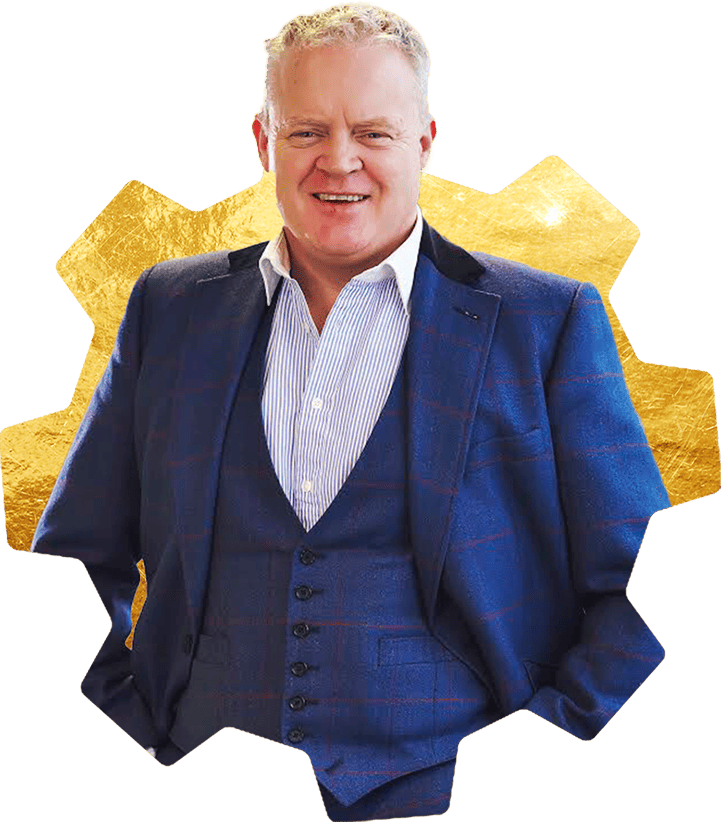What Does A Business Mentor Do?
Mike is a passionate Leader, Experienced Chairman, CEO & Director (Exec & NED), Specialist in strategic board change. Mike has been a consultant for Directors and boards of many FTSE companies.
Get in touch to see if Mike can help your business.
Get In Touch
What Does A Business Mentor Do?
Hear Mike discuss what a business mentor actually does when featuring as a guest on The Advisers Assemble podcast.
What does a business mentor do?
People often get confused about what a mentor is versus a coach. There are a lot of interchangeable descriptions around those two things. They’re both useful but I think they are different.
To me, a coach is somebody with technical skills and knowledge, who will observe behaviour and recommend tools and systems to help someone. For instance, I might be a gold medal runner, but my coach may never have run. They might be a trained biologist or have a good understanding of the body and its capabilities. They can help me position myself correctly at the start of the run. They will observe me, train me and coach me in optimal technical delivery.
Meanwhile, a mentor is someone who is more experiential in that coaching. As a mentor they’ve probably walked that walk. They’ve experienced success – and failure – and they’ll know what it feels like to experience the challenges you’re facing. That might be psychological, physical or financial, and they can draw from personal experience to walk you through that issue or get you to a goal you’ve set.
A mentor is someone who will help take you from where you are to where you ideally want to be. They’re going to help you set that goal – not just generally, but with a rifle focus. Then they’re going to break that goal down with you and help you develop a strategy towards achieving it.
Is mentoring a tailormade, personalised experience?
It is. When we look back at school, we might think of a teacher as a coach and in some ways a mentor. They might be a coach if they’re teaching academic subjects, or they might be a mentor if they’re a sports teacher, especially if they have come from being a footballer or a rugby player.If we ask people what their favourite subject at school was, they will name something and if we ask why, they’ll say that a teacher made it really interesting or brought it to life. So it’s not just about having someone with coaching or mentoring know-how. It’s having someone that you relate to, that you can listen to and engage with.
It’s someone you believe understands you. A mentor needs to be the right fit behaviourally. And you need to have a kind of connection.
Why would somebody need a mentor?
This answer is the same for a mentor or coach. Often you can’t see what you do wrong. If we stick with a sporting analogy, a coach might see small behaviours or dynamics that you don’t notice, because you’re so focused on the end goal.A mentor in a business sense can perhaps see you’re heading down a path they’ve trodden before. They might see things are not going to a good place or that 2 plus 2 doesn’t add up to 4. They can tell you if you’re kidding yourself – perhaps you have a good person on the team, but they’re just not delivering results. They can see that from a broader perspective and help you see it too.
Once you’ve developed a goal or a strategy they will then hold you accountable: “You said you wanted this. We agreed that we would achieve X between last time I saw you and now…” and that’s really important. They will develop you and take you on a personal journey.
We are all where we are because of our knowledge, the decisions we make and the behaviours we use. If you want to get somewhere different, and better, you need to do some things differently. There’s a great saying: “If you want to change some things in your life, you need to change some things in your life!”
They will set goals, hold you accountable and give you a structure to follow to achieve that goal. And they’ll give feedback on performance: good, bad or ugly.
Can you give an example of that feedback?
Earlier today I was looking at a Whatsapp group chat. Somebody did a little video and asked what the others thought. Everyone said it was great, well done, but actually the sound was awful. You couldn’t even hear what they were saying.So should I tell them what they’d love to hear and make them feel good, or do I tell them to get a bluetooth mic and re-record it? We need to be conscious of what it’s like to receive that feedback. Honesty and respect is really key. It’s about telling someone the truth even if it might not be what they want to hear.
So whilst I’m holding them countable in a ‘tough love’ way, I’m not letting them off the hook. They wanted help and I’m going to try and hold them to account. I can’t let them let themselves off easily. It’s human nature to forgive ourselves so much that we can get lazy.
How else can a business mentor help you?
It’s all about areas where a mentor may be more aware or differently aware than the person they’re mentoring. Market trends is a good example. You might think surely people are aware of their own market trends. But sometimes they’re so busy in the business or doing the technical bit, they’re not looking at the bigger picture.A mentor isn’t caught in the emotion and the physicality of the business, so they can see it almost like a drone – they see the whole picture including the market. I think this is part of the commitment of a mentor.
When I start to mentor someone they might think my hourly rate is a lot. But once I’m committed I want to find out more about their sector. I’ll start reading the news for that market. So in addition to all of that personal growth and accountability, we will be looking at market trends and focusing you on that.
We look at risk in our early sessions. I’m finding out about the person, their goals and so on but I’m also trying to understand their risk profile. If we’re going up some imaginary stairs, are they someone who will want to take it carefully, one step at a time? Or are they willing to run up and miss the odd step, knowing there is a bit of risk that comes with that?
That risk piece will also help with decision making. One of the big issues with business is procrastination. We justify ourselves all the time. Let’s say you need to make a sales call: “I won’t ring him today because it’s Monday and everyone’s busy looking at last week’s performance on a Monday.
“I’m not going to ring them now, it’s lunchtime or perhaps they’re heading home now.” We come up with all sorts of excuses. A mentor will see through the bullshit and say that we agreed to do this, there is no time like the present. Excuses will never be acceptable.
It’s like stockbroking – if you want to grow at an average pace that’s fine, but if you want to grow fast there are no excuses. It all comes back to what’s pre-agreed at that early stage against your goals.
How important is specific sector experience?
A mentor brings a network. They’ve been there, walked the talk, seen it and done it in their sector. For example, I have an incredible global network of retailers and suppliers and manufacturers in the food and drink area. In the past 10 years I’ve also done a lot around construction and have a lot of specific contacts there.If someone came to me as a dentist to grow their business I would explain that I can give them the structure: the finance, the marketing, the selling, but I don’t have technical knowledge. If that’s where you need some support, I’m not your guy.
The E-Myth is a great book by Michael Gerber – it’s about 40 years old now. He talks about how most people are trained to be a technician. They’re trained to be a plumber, a dentist, a search engine optimiser… They’re taught the technical element, they graduate in the technical element. They don’t then learn to become a manager of other technicians and go from manager to an entrepreneur, who can handle a whole business – the finance, the sales, the marketing, the operations and strategic focus.
A mentor takes you up that ladder and gives you the skillset, the planning and the networking. There’s a lot they can bring. Be careful who you choose – if you choose someone who’s only one step above you, be sure they can help you take that step.
Most people when they get a mentor or a coach want to take multiple steps on a journey across two or three years.
What other benefits do you get from a mentor?
We become a cheerleader for you. It’s not so much about being a parental figure – it’s a form of marriage. I enter into a relationship with these people.If your parents or partner said something to you, you would take it on faith that they’re doing it from a place of love. When they’re tough, they’re doing it for your benefit, not theirs. I give people tough love, and then when I say “that was outstanding, you are so good at the selling – we just need to get the finance bit sorted,” that will boost your confidence.
Because of their experience a mentor can see what you’re good at – then they can use their network to support you. Someone might say that their website is a nightmare and I’ll recommend your company. I’ll be promoting you even when you don’t know I am.
It’s having someone to boost your confidence and then directing that confidence. We’ll be sharing contacts to find solutions to your problems. It’s not just about goal setting – it’s so much more.
It’s like you’re sitting on my shoulder telling me what’s good and what’s bad as you go through the process.
That’s a good example – when we talk about someone sitting on your shoulder, we think of the good vs bad or the nice vs nasty. Sometimes I have to be a bit of both. I say up front to a client that I’m not there to cuddle you every time we meet. But if you want someone who’s your biggest cheerleader but also your biggest critic, I’m both of those people.
How much does a business mentor cost?
It varies a lot. There are people out there doing it for £50 an hour – if you’re starting from a clean slate and you’ve not achieved anything, they might be great. If you’re earning £20 an hour maybe they can take you to the next level.I’m normally working in the range of £1,000 to £3,000 an hour. If people pre commit to a longer period I’ll look at discounting that a little bit. I unashamedly wouldn’t start for less than £1,000 an hour – but I can change your life for that.
Let’s say we meet for an hour a month at £1,000 – along that journey we’re going to double your business this year. I’m going to take you from making £50,000 profit to a multi million pound business. I will help you exit that business for a life-changing sum of money.
Prices vary massively – but if you had an opportunity to pay someone £50 an hour to teach you a few technical bits, or £1,000 an hour to change your life, what would you choose? If I didn’t think I could more than double someone’s business I wouldn’t even be mentoring them.
Mentors like Grant Cardone cost about £100,000 a year plus, or one to ones with Anthony Robbins will cost you around £1 million. Anthony Robbins went from earning $20,000 a year in a suburb of New York to earning a £1 million within one year. A few years later he floated his company for £400,000,000 and bought an island in Fiji. So, it’s all relative.
So investment gets results in mentoring?
Can you really afford to go cheap if you really want to achieve great things? Don’t expect to achieve a millionaire lifestyle with minimum wage thinking. This isn’t somewhere where you want to be cutting costs.I also say that about accountants and lawyers. There are some areas of business where paying good money means you can demand and expect outstanding results.
You’re not locked in forever. I’m generally not interested in doing less than six months. So that’s a £6,000 commitment – and I’ll reduce it if you went to a year.
Just look at my Google reviews and some of the people I’ve helped – the success we’ve had alone should give you some comfort. But if six months in you don’t think you’re getting that value, we’ll shake each other’s hands and wish each other well.
How long will I need a mentor?
I’ve been mentoring some clients for well over 10 years now. It changes. It can go from being once a month to a once-a-year strategic review where we’ll spend a half a day or a day together. We’ll reset your three year plan – because we’ve taught you the tools; how to do the planning and the self-accountability.I’d expect most relationships to last a couple of years but that’s subject to it working for both parties. With some people I just have a one-off meeting – they might just buy one day of my time.
It’s a bit like anything – if you go to a shop and you buy one can of Coke you’ll pay a set price, if you go to a cash and carry and buy 24 you’ll get them cheaper.
How do you go about finding the right mentor?
You need to kiss a few frogs, as in the old fairy tale, before you find the prince. If people are interested to find out more, I’ll jump on a 15 or 20 minute call with you. It’s a bit like a speed date. You can always establish in 20 minutes whether you relate to someone or not.I can ask a few interrogative questions to draw out what you really want and the kind of help they need. You can see whether I’m the kind of person you want to work with.
I had a call a few months back with someone who said I sounded a bit scary – in which case I probably wasn’t the right person for them. They could go and find someone else that’s more their cup of tea.
You wouldn’t marry the first person you like the look of, so don’t lock in to the first person you see. Some people want a specific car, they go online, if they’re happy with the price they pay for that car and It’s delivered in a week or two. Other people will want to go along, kick the tyres, and have a test drive. With mentoring it is an important relationship, so make sure it’s right.
I do try and concertina that decision time down, though. If they’re going to take six months to decide, we could have probably doubled their business in that time. How long do you want to wait to be the person you could have been, to achieve the goals you could achieve?
How should you get started with a business mentor?
Make some notes about what you want. It’s your mentoring – I’m a tool you’re going to use to get what you want to achieve. Have some questions ready that are important to you. Price is often a big one – and I’m normally quite upfront with that.If a mentor says that you will talk about money later, they probably know it’s going to scare you and they’re trying to kind of justify it. I’m not embarrassed about it – I’ll charge £1,000 an hour but give you tens of thousands of pounds of value.
Ask what you can expect to receive and how available they will be between sessions. Can you email or call occasionally? I personally don’t mind the odd email or five minute call – I’ll make time. But if each email requires half an hour of my time I might charge you for that extra time. There’s flexibility built in.
But I’d establish that up front. This is a professional yet personal relationship. There are boundaries and there are parameters.
What are the usual expectations with a mentor?
It’s about those boundaries. I don’t want to go out to a private function or a party and be doing mentoring chats.It’s good to ask your mentor where those lines are – ask about what to expect and if you’re likely to get the same boundaries back. More importantly, ask about their experience in achieving what you want to achieve. Have they been there? Have they seen and done it?
How many other people have they helped? Can you talk to some and ask them some questions? Do your homework. Don’t go into anything blindly – especially when it’s a big ticket spend. If you’re investing £6,000 or £12,000 on the relationship you should research whether they’re as good as they say they are.
People often say, Mike I’ve got this great person to be on your podcast. But I look around and they’ve got no profile, they’ve got no business, no wiki page… I’m not saying that’s the be-all and end-all, but normally people promote themselves at their absolute best.
Is there enough evidence to support what you’ve heard about this person? Look for proof that Mike Green has built businesses, Mike Green has failed at business, has massively succeeded and helped other people across a range of businesses.
Some people have a nice-sounding name, a good logo, a jazzy website… but it might be all glitz and no substance. Some people have loads of substance but a crap website. That profile research can make you think. Really, it comes down to can they deliver, have they delivered, do they deliver?
When I set out to help someone I need them to be successful – it’s my reputation on the line as well as theirs. That leaves clues. There will be editorial. There will be news features. There will be other stuff out there that proves it’s not all smoke and mirrors.
How can people connect with you, Mike?
You can fill out a little form on my website. That will come straight to me. I see all of those because it’s important to me. We’ll set up a call to explore mentoring.You can link with me and look at my successes. You can also search me on TikTok, Instagram and Facebook – there’s a lot of free content on there and the podcast is absolutely free. I’m interviewing influential people. The latest has been Dame Mary Archer – the woman is amazing. At 79 years old what she’s achieved is incredible.
In the 1970s she was a solar scientist mentored by a Nobel Prize-winning scientist. People would talk about her as being married to Jeffrey Archer and that she’d done well on the back of Jeffrey. I now realise Jeffrey is married to Mary. She’s amazing.
I’ve got other people like Charlie Mullins who sold his business last year for £147 million. He left school at 15 with no job and became a plumber. Neville Wright, Joe Valente… there’s loads of people on that podcast.
If you just listen to learn rather than for entertainment, there’s knowledge to put into any business and loads of it free. But the mentoring is really specific – it’s all about you, your business and life. It’s about what you want to achieve.
On episode 256 of the Advisers Assemble podcast (31 March 2023), Alex Curtis talks about being a business mentee.
In many ways Alex was the perfect mentee – I met him seven or eight years ago when he was doing his own thing, subcontracting and building his business. Did he do it all perfectly? Probably not – none of us do. But as Charlie Mullin says in his interview, “If I ended a week and I’d done 78% right I made money – if I ended a week having done 70% wrong I lost money.”
You don’t have to be perfect to achieve amazing things. Alex just worked at it. He asked lots of questions, he put those answers into practice and now he’s got a business that is unrecognisable from where it was, and will be unrecognisable again in three years ‘ time.
Hopefully he’s benefited from my mentoring, plus I promote him and recommend him and he does the same. So even if you’re no longer mentor and mentee, it becomes lifelong respect, connection and friendship.






